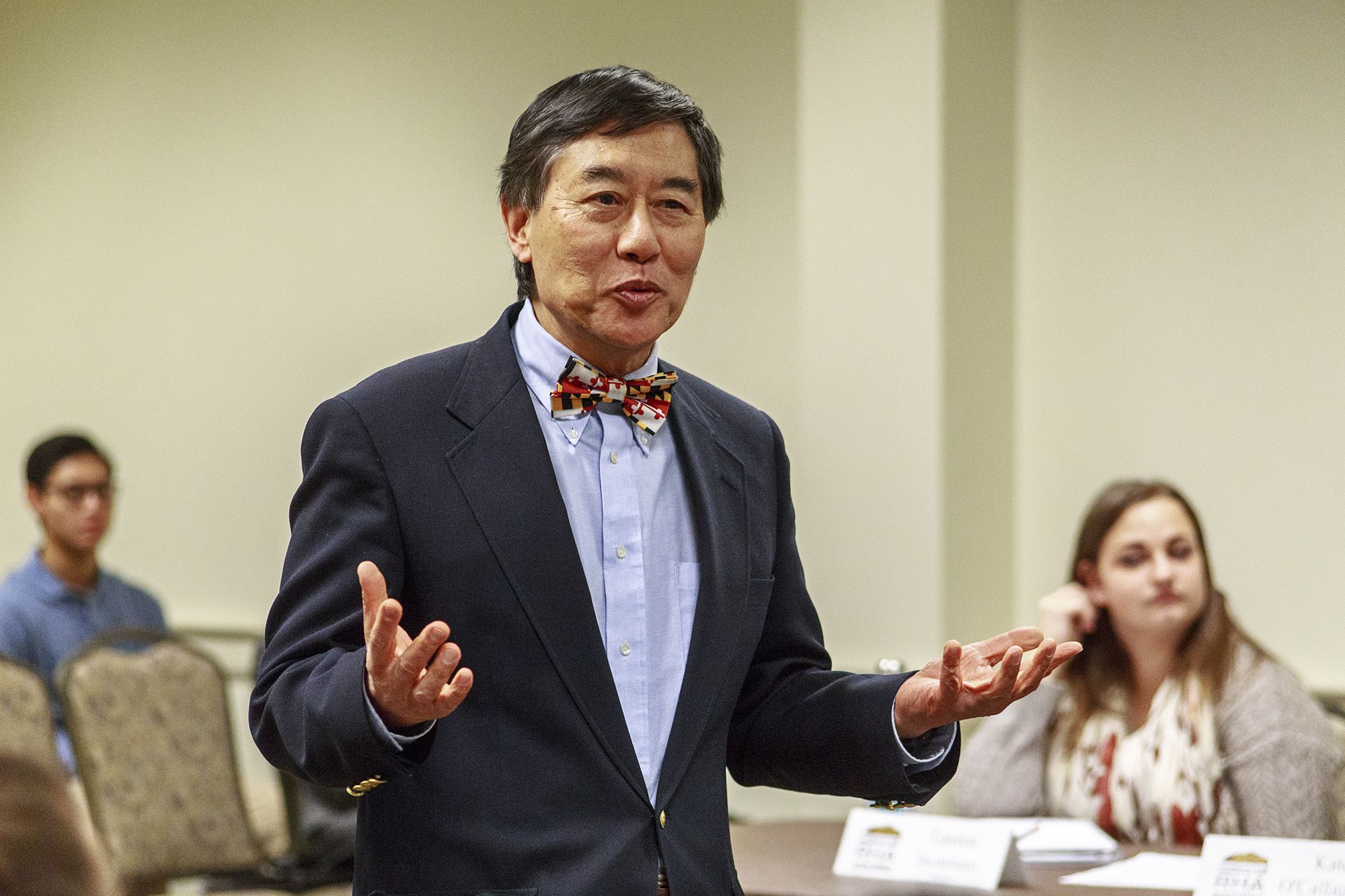Views expressed in opinion columns are the author’s own.
University of Maryland President Wallace Loh recently received a $75,000 raise, courtesy of the good people on the Board of Regents, amounting to an annual salary of about $675,000. In The Diamondback’s annual salary guide, one can read about the dozens of employees at this university who make less in one year than Loh’s pay raise alone. When considering the janitors, groundskeepers and teaching assistants who get paid a crumb in Loh’s compensation pie, it’s hard to ignore the injustice.
In a press release, the board said Loh’s increase brings his “compensation closer to the median earned by peers at comparable institutions nationwide,” and later referenced strong performance as one factor justifying the salary bump. The board believes our president is doing a good job. But, critically, it calculated Loh’s bonus by comparing his pay to that of university presidents at similar institutions. The board threw Loh $75k — enough to buy three cars or one year of an Ivy League education — because, well, everyone else is doing it.
This pernicious phenomenon extends far beyond this university; across industries, managers and CEOs receive inflated compensation in an endless race against industry competition. The psychology of this cycle is intuitive: When an executive at a company considers what pay to demand, she might look at CEO compensation at similar companies and request a higher salary than her peers.
Similarly, if the board offered Loh a $150,000 salary — excellent pay for the vast majority of Americans — he might wonder why he’s losing out to his Big Ten peers. Numerous studies suggest this dynamic, in which top-level salaries fly through the roof as executives compete for industry status, drives unequal CEO pay in the United States.
One elegant policy might interrupt this cycle: A nationalized maximum wage.
It’s not as crazy as it sounds. In post-World War II America, the federal government levied a 90 percent top marginal tax rate, effectively capping one’s yearly income. With such a policy, it’s silly to ask for a dollar raise because 90 cents goes to the feds. With a maximum wage, it makes more sense for a company to give sizable raises to multiple middle- and low-level employees than to waste a giant bonus on one executive. Under this American tax regime, the middle-class thrived, productively boomed and CEO pay was restrained. The economy worked.
However, then-President Ronald Reagan’s tax cuts pulled the top marginal tax percentage down into the high 20s. The administration claimed the rich would use their tax-free wealth to invest in the economy, facilitating trickle-down benefits for the middle-class and poor.
This did not happen. Instead, Reaganomics produced an economy in which the rich reap massive gains at the expense of everyone else. As economist Thomas Piketty and his colleagues found, the bottom 50 percent of Americans have been wholly excluded from economic growth over the past several decades. We have an economy in which executives receive raises in the thousands and millions, and the stagnant majority get zilch.
A maximum wage will restore balance to the income distribution. Policymakers have many options: The federal government could establish a cap on earnings or set a prohibitive top tax rate. We could set our maximum wage at $1 million, $5 million or $380,000 — the cap, in today’s dollars, Franklin Roosevelt proposed in 1942. While hardly a panacea (a maximum wage wouldn’t limit capital gains, a huge driver of wealth inequality), any version of this policy is a material and moral victory for those this economy has left behind.
As university presidents and corporate executives race after increasingly grotesque compensation, policy-makers and activists must fight to limit their earnings. With a maximum wage, we can shrink the economic gap between the CEO and her secretary, and between Loh and the people who built his mansion.
Max Foley-Keene, opinion editor, is a sophomore government and politics major. He can be reached at opinionumdbk@gmail.com.



